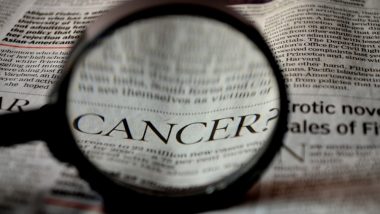Washington D.C, July 3: In a recent study it has been found that people with obesity have a higher chance of suffering from cancer rather than the ones who smoke. The study was conducted by Cancer Research UK.
According to the study, almost a third of UK adults are obese and while smoking is still the nation's biggest preventable cause of cancer and carries a much higher risk of the disease than obesity. Excess weight causes around 1,900 more cases of bowel cancer than smoking in the UK each year. The same worrying pattern is true of cancer in the kidneys (1,400 more cases caused by excess weight than by smoking each year in the UK), ovaries (460) and liver (180). Eat a Lot of Tomatoes Everyday to Keep Liver Cancer Away.
The institute launched a nationwide campaign this week to increase awareness of the link between obesity and cancer. Extra body fat sends out signals that can tell cells to divide more often and can cause damage that builds up over time and raises the risk of cancer.
The campaign compares smoking and obesity to show how policy change can help people form healthier habits, not to compare tobacco with food. Michelle Mitchell, the lead researcher of the study, said: "As smoking rates fall and obesity rates rise, we can clearly see the impact on a national health crisis when the Government puts policies in place - and when it puts its head in the sand.
"Our children could be a smoke-free generation, but we've hit a devastating record high for childhood obesity, and now we need urgent Government intervention to end the epidemic. They still have a chance to save lives. Scientists have so far identified that obesity causes 13 types of cancer but the mechanisms aren't fully understood. So further research is needed to find out more about the ways extra body fat can lead to cancer," said Mitchell.
The institute wants the Government to act on its ambition to divide childhood obesity rates by 2030 and introduce a 9 pm watershed for junk food adverts on TV and online, alongside other measures such as restricting promotional offers on unhealthy food and drinks.
Professor Linda Bauld, the executive of the institute said: "There isn't a silver bullet to reduce obesity, but the huge fall in smoking over the years - partly thanks to advertising and environmental bans - shows that Government-led change works. It was needed to tackle sky-high smoking rates, and now the same is true for obesity."
"The world we live in doesn't make it easy to be healthy and we need Government action to fix that, but people can also make changes themselves; small things like swapping junk food for healthier options and keeping active can all add up to help reduce cancer risk," she added.













 Quickly
Quickly






















